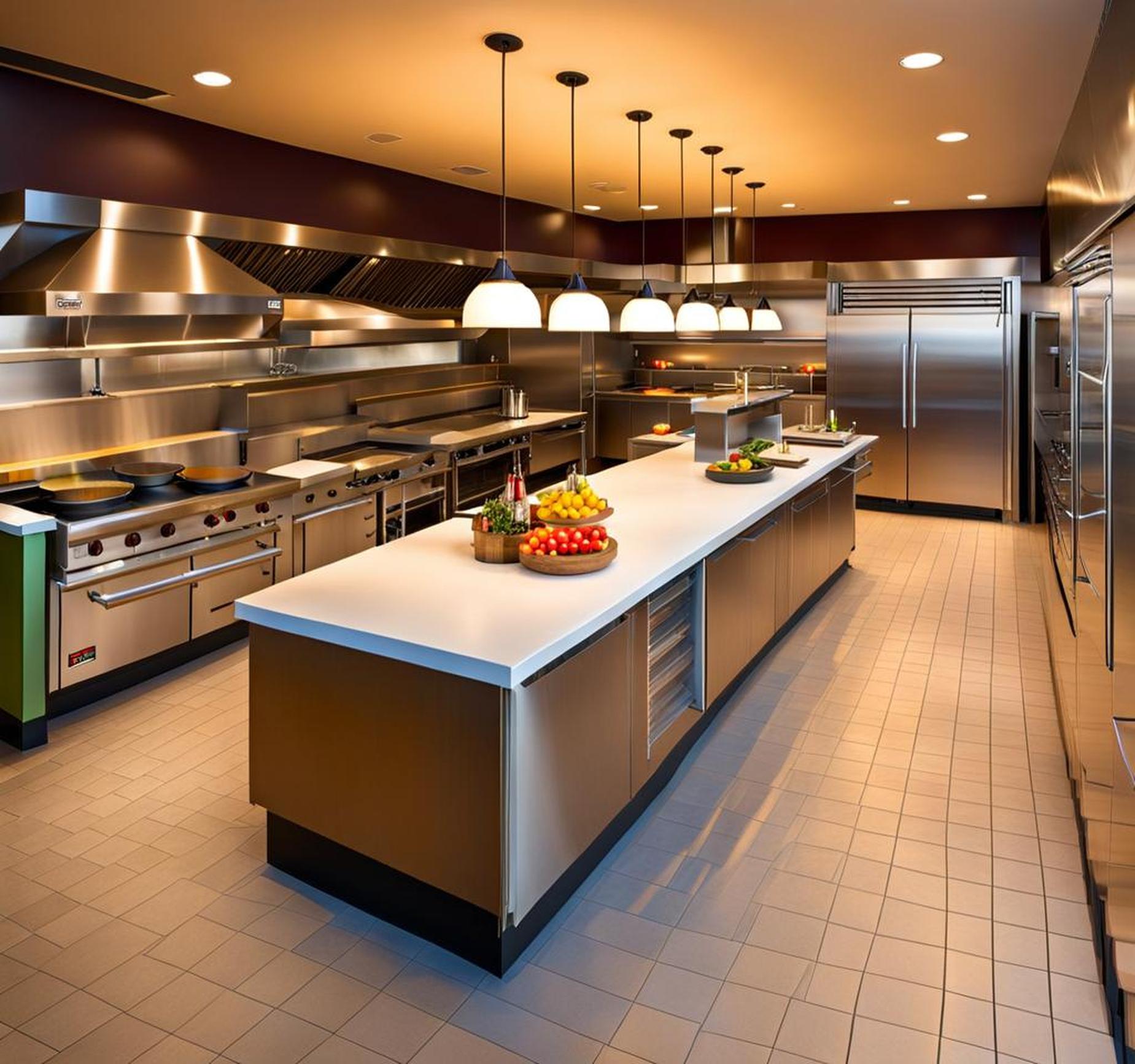When choosing a floor for your busy restaurant kitchen, most owners default to basic commercial vinyl. It’s affordable, durable, and easy to clean, right? While vinyl checks some boxes, it’s actually not the best solution for restaurants that see hundreds of covers per day. The constant barrage of foot traffic, shifting temperatures, scalding spills, and aggressive cleaners calls for a more heavy-duty material. Believe or not, humble quarry tile outperforms trendier competitors on key metrics for active food service settings.
What to Look for in Commercial Kitchen Flooring
Any floor going into a restaurant kitchen needs to meet stringent requirements around safety, heat resistance, longevity and hygiene. As the workhorse of your business, it will endure punishing conditions that quickly show the limitations of lesser materials.

Key Flooring Attributes for Restaurants
- Withstands constant foot traffic from staff
- Provides safe traction, especially when wet
- Tolerates exposure to high heat
- Resists moisture damage and growth of mold/bacteria
- Easy to quickly clean day-to-day
- Does not require frequent replacement
It’s a tall order finding flooring that fulfills all criteria affordably while still looking appealing. Let’s compare how leading options for commercial kitchens measure up.
Why Quarry Tile Beats Vinyl for Busy Restaurants
At first glance, vinyl seems ideally suited for the demands of a restaurant. It offers the requisite durability, moisture resistance and ease of maintenance at a budget-friendly price point. But take a closer look and vinyl’s shortcomings become apparent.
Superior Durability
Made from natural stone, quarry tile’s dense composition and hardness Rating of 8 on the Mohs Scale make it exceptionally impact and compression-resistant. The glazing also resists scratches, chips and wear from traffic. While vinyl is marketed as “commercial grade,” it still suffers gouges over time that trap bacteria and require replacement.
Surpasses Vinyl in Slip Resistance
Vinyl relies on initially grippy surface embossing for traction. But the pattern rapidly wears smooth with use, especially under rolling carts. The grout lines between quarry tiles maintain reliable friction. If replacing worn vinyl tractions trips due to liability concerns, expensive quarry tile pays for itself in injury lawsuits avoided.
Not Susceptible to Thermal Shock
A busy kitchen sees extreme temperature swings from boiling water to cold rinse cycles. Drastic shifts can make vinyl flooring contract, expand, bubble and peel away from sub flooring. Quarry tile does not react to thermal shock, so hot pans or cold cleaners won’t faze its integrity or appearance.
Moisture also passes freely through quarry tile’s grout channels instead of getting trapped beneath vinyl. Limiting standing water and humidity keeps mold and bacteria at bay.
Quarry Tile Flooring Buying Considerations
While installation is best left to flooring professionals, restaurant owners can educate themselves on specifications to request.
- Opt for thicker commercial grade for maximum durability
- Choose larger format 12″ x 12″ tiles over mosaics
- Select darker colors to disguise dirt and stains
- Install over concrete rather than wood for stability
- Use proper thinset mortar rated for heavy usage
- Verify coefficient of friction >.50 for needed slip resistance
Restaurant Kitchen Flooring Comparison Chart
| Property | Quarry Tile | Commercial Vinyl |
|---|---|---|
| Durability Rating | Excellent | Moderate |
| Slip Resistance | High | Moderate |
| Heat Tolerance | to 2,000deg F | to 250deg F |
| Water Resistance | Impervious | Moderate |
| Maintenance Needs | Low | Moderate |
| Typical Lifespan | 20+ Years | 5-10 Years |
Restaurant Owner Testimonials
“We renovated with quarry tile five years ago and it still looks new despite nonstop traffic. Spills wipe right up because of the grout.” – Sarah D., owner of a popular Seattle breakfast spot
“Repaving our old vinyl floor with quarry tile was the best business decision I made. We haven’t had staff slipping or tile cracking under extreme heat.” – Todd A., owner of a Nashville hot chicken restaurant
Vinyl sheet flooring might seem like the convenient, affordable choice on paper for active restaurant kitchens. But under punishing daily wear and tear, vinyl requires frequent replacement that proves costly long-term. The upfront investment into virtually indestructible quarry tile pays dividends for decades with lower maintenance expenses and better slip resistance.
For restaurant owners serious about protecting their investment, quarry tile checks all the boxes for safety, durability and ease of care in demanding environments. Don’t settle for vinyl and schedule your free consultation on quarry tile floors now!
